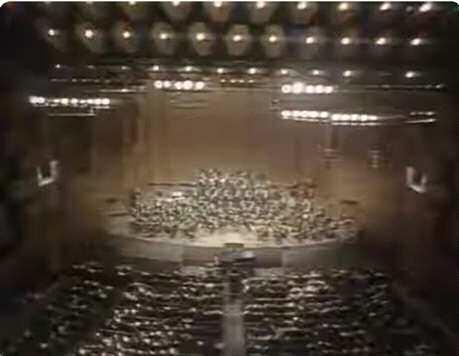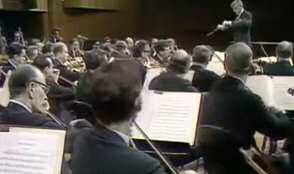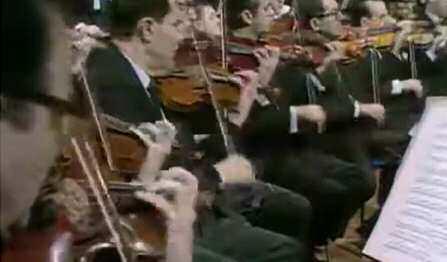NEW YORK, NY— On January 28, 1968 the New York Philharmonic Orchestra was in celebration of its 125th anniversary along with the Vienna Philharmonic. Beethoven is included because Musical Director, Leonard Bernstein, discovered by reading programs from the orchestras’ performances back in 1842 that they performed numerous works by the composer. To emphasize the relevance of Beethoven, the director mentioned how often we use Beethoven’s compositions today, to mark our own important occasions. We use a Beethoven sonata in most piano recitals, during World War II our musical symbol for victory was Morse Code, da da da daaaaa, Beethoven’s Fifth.
Bernstein’s introduction continued, “And when a great man dies, what do we play? The funeral march from Beethoven's Eroica. And on United Nations Day or Brotherhood Week or whatever it happens to be, what is the inevitable piece of music? Beethoven's Ninth. Why, even the Beatles featured it in their film Help! And look at Schroeder in Peanuts. To him, Beethoven's Birthday is more important than the Fourth of July! It's Beethoven, Beethoven! Forever Beethoven! It's a name that's almost become a synonym for music itself.”
Bernstein continues by giving his audience a personal profile of the composer. He was not very pleasant, but extremely talented, as we know. This could be partly, or mainly, due to his upbringing. His father concentrated his energy on his son’s musical education, generally neglecting all other subjects, including parental affection. His upbringing may also have contributed to his “gift to translate his emotions into music…for him it was painfully personal.” (“The Musical Experience”, John Gillespie) The maestro enjoyed conducting this piece. It was obvious, as Bernstein is noted for his passion toward music, and he said of Beethoven’s Fifth, “It's still the most fantastic music, no matter how often you hear it. And did you grasp the shape of that movement? The perfect definition, the exactness of starts and stops of holding back and plunging ahead, of the sudden mysterious drops and the wild eruptions. Every split second is measured and molded by a master.”
The second composition played was Piano Concerto No. 4 in G Major for Piano and Orchestra. The pianist was an Algerian artist, Joseph Kalichstein, and the assistant conductor, Paul Capolongo, and Israeli. Bernstein’s comment was. “How wonderful that Beethoven's music can bring together an Algerian and an Israeli.” It might be interesting that Beethoven only composed seven concertos, five for piano, one for violin, and a “Triple Concerto” for violon, piano, and violoncello. This is mentioned in comparison to Mozart’s 50 concertos because, apparently Mozart set the standard for musicians and composers to aspire to in his day.
Bernstein chose to accent a connection between Beethoven and freedom. This meaning that in choosing certain notes he was exercising a certain “freedom of choice” to not choose other notes. Gillespie puts it another way calling Beethoven a forerunner of the Romantic period, though he was actually “a Classic composer with a broad scope.”
The concluding piece played was from Beethoven’s opera, “Fidelio”, “Leonore Overture No. 3.” The story is of a married couple and the hero is the husband, a young Spaniard, Florestan, who has been unjustly imprisoned for speaking out freely against tyranny. His loving wife, Leonore, has managed to sneak into the prison, disguised as a boy and gets a job as the jailer's assistant so that she can help her husband escape.
Again, Bernstein makes a connection with the theme of freedom. The freedom being in the composer’s lack of satisfaction with his work and rewriting the overture four different times. But also, from a more literary perspective, it is the triumph of justice over evil.
Gillespie mentions the operas’ themes as being of justice and conjugal love, which were important beliefs of the composer. “Beethoven was never satisfied with “Fidelio” and felt frustrated as an opera composer.” (Gillespie) This is obvious in his rewriting the overture four times.
Yet, Bernstein is inspired by the beautiful composition with its stirring conclusion of triumph.
The scheduled performance for next week, April 26, is “Fantastic Variations.” The following week, May2, Bach Transmographied” will be the highlight.



